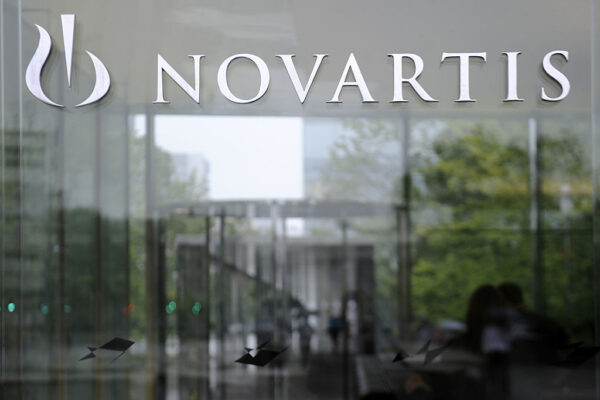
A rare blood disorder treatable with infused medications now has its first oral drug alternative. FDA approval of the new drug from Novartis positions the pill to compete directly against two blockbuster AstraZeneca products.
The rare disease, paroxysmal nocturnal hemoglobinuria (PNH), leads to the destruction of red blood cells by the complement system, a part of the immune system. The Wednesday approval of the Novartis drug, iptacopan, covers adults regardless of whether they have previously been treated with another PNH drug or not. Novartis will market its new twice-daily pill under the brand name Fabhalta.

With the Rise of AI, What IP Disputes in Healthcare Are Likely to Emerge?
Munck Wilson Mandala Partner Greg Howison shared his perspective on some of the legal ramifications around AI, IP, connected devices and the data they generate, in response to emailed questions.
In addition to destroying red blood cells, PNH can also lead to bone marrow failure and blood clots. The disease is a chronic condition that requires patients to receive frequent blood transfusions. Drug companies have researched ways to block certain proteins in order to tamp down the complement system activity that destroys red blood cells.
[Paragraph updated to correct target of Empaveli.] AstraZeneca’s Soliris and Ultomiris, antibody drugs administered as infusions, block a complement system protein called C5. Empaveli, an Apellis Pharmaceuticals antibody drug approved in 2021 for PNH, targets a complement system protein called C3. But many patients are unable to control their anemia and other PNH symptoms with C5 inhibitors. Consequently, patients may continue to need regular blood transfusions.
Novartis’s Fabhalta blocks a complement system protein called factor B. In the cascade of complement system proteins, factor B is upstream of C5. The company has said addressing this target prevents destruction of red blood cells in circulation as well as in the liver and spleen. As a small molecule, Fabhalta can be formulated as an oral pill.
FDA approval of Fabhalta is based on results from an open-label Phase 3 study that evaluated patients previously treated with a C5 inhibitor. Those study participants were compared to patients who received either of the two AstraZeneca C5 inhibitors. Results showed that treatment with Fabhalta led to superior hemoglobin improvement in the absence of red blood cell transfusions. The Novartis drug also led to a higher transfusion avoidance rate.
After presenting Fabhalta’s head-to-head clinical trial results at last year’s annual meeting of the American Society of Hematology (ASH), Novartis said it planned to seek regulatory approvals for the drug in PNH. The submissions are also supported by data from a separate Phase 3 test that evaluated Fabhalta in patients naïve to a complement inhibitor therapy. Novartis now has the final 48-week results from the clinical trial that tested Fabhalta against the AstraZeneca PNH drugs. These additional trial results will be presented this weekend during the ASH meeting in San Diego.
Adverse reactions reported in the clinical trials included headache, inflammation of the throat and nasal passages, diarrhea, abdominal pain, and bacterial infections. The bacterial infections are potentially the most serious. Fabhalta’s label carries a black box warning that flags the increased risk of life-threatening infections caused by encapsulated bacteria, such as Streptococcus pneumoniae, Neisseria meningitidis, and Haemophilus influenzae type B. The label states that patients should be up to date on vaccinations against these bacteria. The FDA is also requiring Novartis to provide a Risk Evaluation and Mitigation Strategy, a safety program that ensures those who prescribe or administer a drug are aware of the safety risks and how to manage them.
Fabhalta was discovered in the labs of Novartis. The drug is currently under regulatory review in other markets around the world. In addition to PNH, Novartis has tested its drug as a potential treatment for other complement system disorders. For example, regulatory submissions are planned for the molecule in immunoglobulin A nephropathy, a chronic kidney disorder driven by complement system dysfunction.
In PNH, Novartis has set a wholesale price of $550,000 per year for Fabhalta. The company expects the new drug will become available later this month.
“This new, effective oral medicine may mean that patients can reset their expectations of living with PNH, a chronic and life-altering blood disease,” Victor Bultó, president US, Novartis, said in a prepared statement. “As Novartis continues to focus on conditions with unmet patient need, we are exploring the potential of Fabhalta in other complement-mediated diseases – with an ultimate goal to drive meaningful change for patients.”
Photo: Adrian Moser/Bloomberg, via Getty Images














